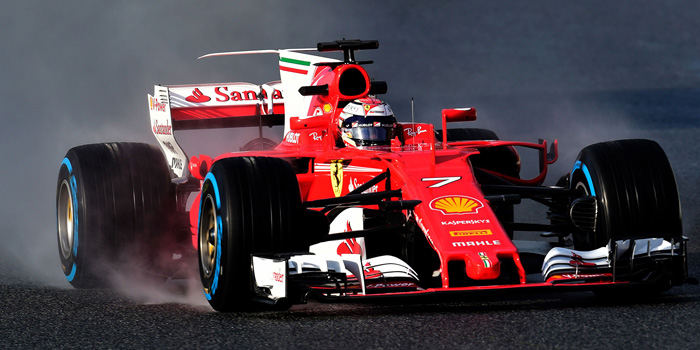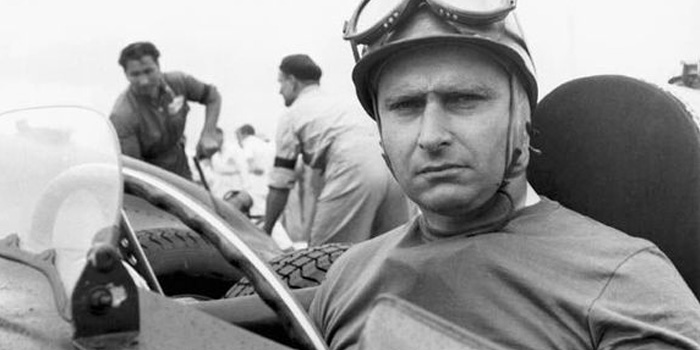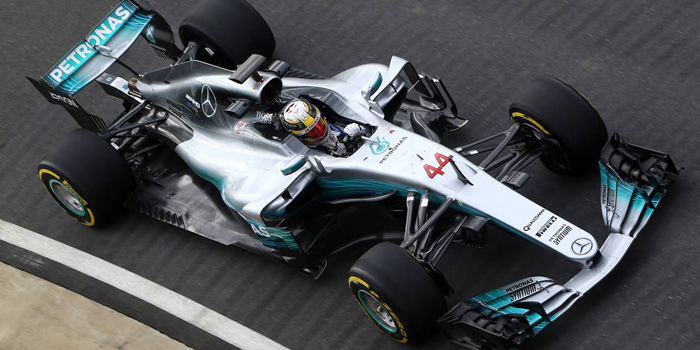Interested in how “
Formula 1” got started? Postponed due to the Second World War, the world driver’s championship was made official in 1947 and the “formula” in the name refers to the set of rules for participants who own the cars for racing. It was first called Formula A and was inspired by previous European racing challenges. Here are some interesting facts about the world’s fastest motor sport.
The average cost of F1 car is 6,8 million. Bear in mind that it is the price of the most basic components. It doesn’t include hundreds of millions spent on development and research. It’s quite a pricey machine.
 Image Source: bloomberg.com
Image Source: bloomberg.com
A Formula 1 car only weighs around 650 kgs (which includes the driver) and generates approximately 800 bhp (brake horsepower) from its cutting-edge engine.
Approximately 80, 000 components come together to make a F1 car, and the cars need to be assembled with 100% accuracy to work.
A single gear shift in an F1 car can be as fast as 50 milliseconds. This is faster than the blink of an eye.
 Image Source: makformula1.blogspot.com
Image Source: makformula1.blogspot.com
A Formula 1 tire loses half a kilogram before being replaced. An average tire roadworthy car's tire can last anywhere from 60,000 to 100,000 km's. An F1 car will only last around 100 km before it needs to be changed.
A Formula 1 car can experience up to 5 G's of force when breaking and 3 G's of force while cornering. This force is greater than that experienced by astronauts in the space shuttle. This pressure will also force a drivers tear ducts to activate, causing moisture buildup in their helmets.
 Image Source: express.co.uk
Image Source: express.co.uk
Juan Manuel Fangio won the title during 1951, 1954, 1955, 1956 and 1957. His record of five World Championship titles stood for 45 years until German driver Michael Schumacher took his sixth title during 2003.
The driver of an F1 car, on an average loses 2.5 to 3kg of bodyweight in terms of fluids and sweat after each Grand Prix (race). This is attributed to high G forces while cornering and mainly to the exhilarating cockpit temperatures.
 Image Source: biser3a.com
Image Source: biser3a.com
F1 helmets are among the toughest things in the world. Some of the tests they have to pass include being subjected to an 800 degrees celsius flame for 45 seconds.
An average F1 engine will last for about 5 races, making its life expectancy around 9 to 10 hours.
F1 cars use sprung suspension in the front and can absorb an incredible load. They are easily capable of handling up to 2 tonnes of pressure.
 Image Source: autoweek.com
Image Source: autoweek.com
Formula 1 is one of the world's most popular, excitement-filled spectacle sports. Make sure to take a look at our peice on the
greatest F1 drivers of all time.
Bet on Formula 1 with Betway online before the start of the Belgian Grand Prix on 26 August 2018. Or bet on all the action as it happens by
betting live.

Betway also has a full range of
casino games that you can enjoy in the downtime between the world's most popular races.
For all the latest sports news, betting tips and promotions, follow
Betway Ghana on
Facebook,
Twitter,
Instagram,
Google+ and
YouTube